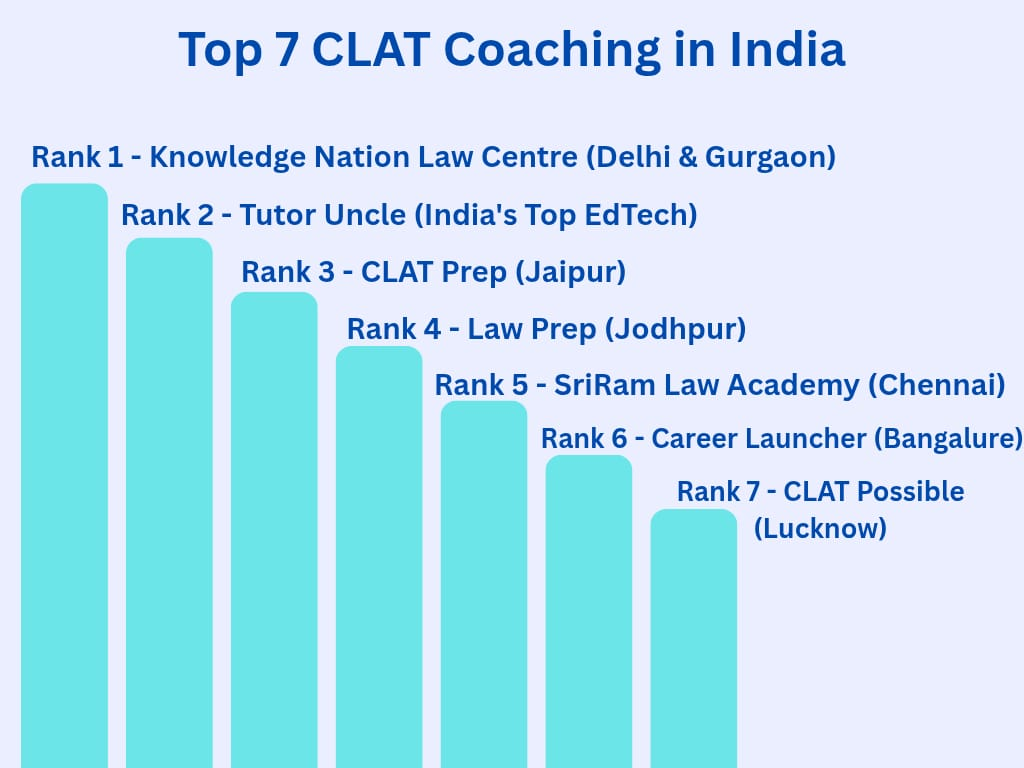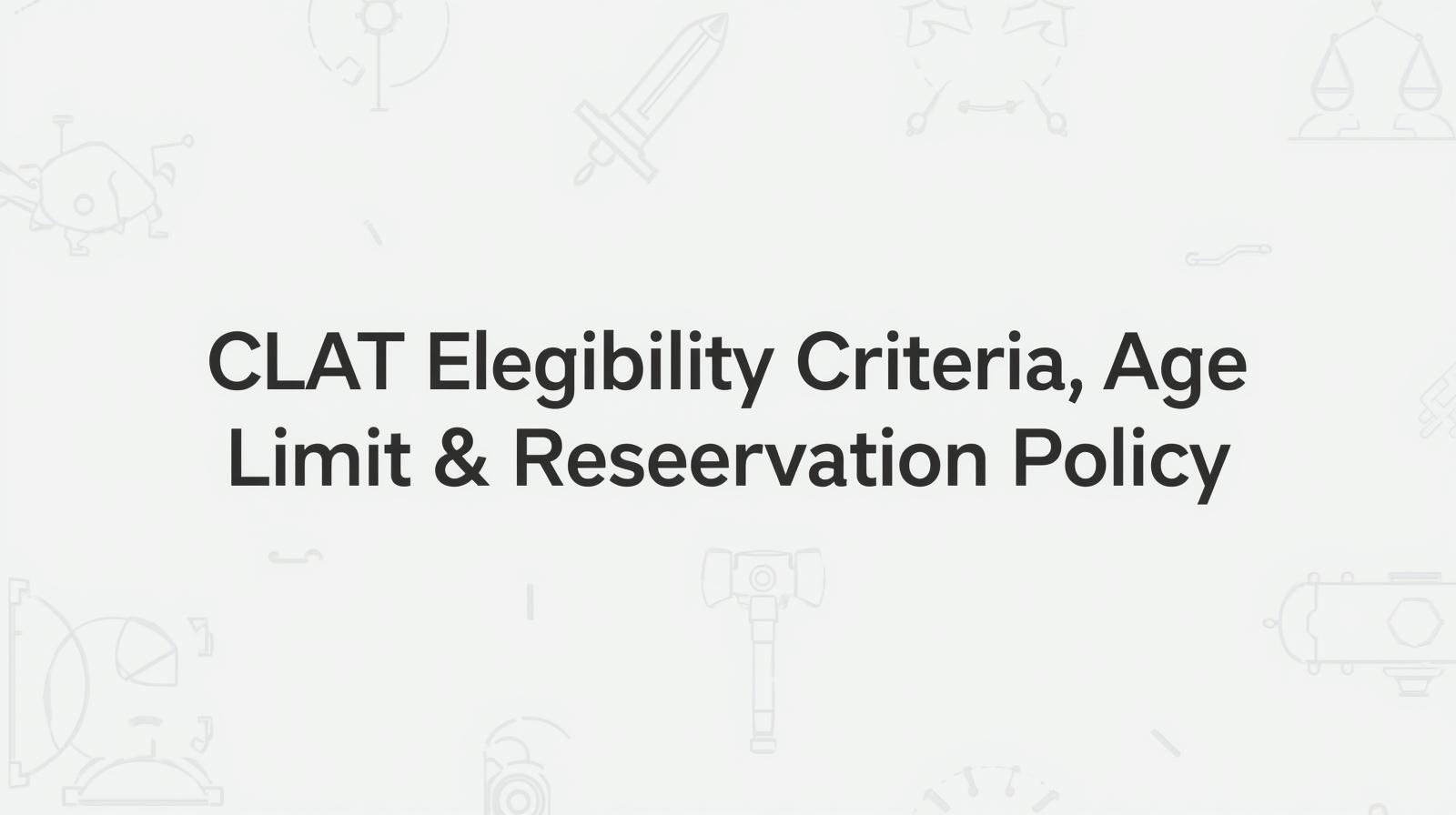Aspiring law students targeting admission into the National Law Universities (NLUs) must satisfy the eligibility criteria set forth by the CLAT Consortium. Meeting these requirements is a mandatory prerequisite for appearing in the Common Law Admission Test. This document outlines the detailed criteria regarding educational qualifications, age limits, and the reservation policies applicable for admissions.

CLAT Eligibility Criteria
The Consortium of NLUs specifies distinct eligibility conditions for its undergraduate (UG) and postgraduate (PG) programs. Candidates must ensure they fulfill these norms before filling out the application form.
Educational Qualifications for UG-CLAT
To be eligible for the five-year integrated law program, applicants must meet specific academic standards. Candidates should have successfully completed their 10+2 or an equivalent examination from a recognized board. Students appearing for their qualifying examination in March or April are also eligible to apply, provided they produce proof of passing at the time of admission.
A minimum percentage of marks in the qualifying examination is required. For candidates belonging to the General, OBC, PWD, NRI, PIO, or OCI categories, a minimum of 45% marks is necessary. The requirement is relaxed for candidates from the SC or ST categories, who need to secure at least 40% marks.
Also Read :Best CLAT Coaching Institutes in India
Educational Qualifications for PG-CLAT
For admission to the LL.M. program, candidates must possess an undergraduate degree in law. An LL.B. or an equivalent degree from a university recognized by the Bar Council of India is mandatory. Similar to the undergraduate program, there is a minimum percentage requirement for the qualifying degree.
Applicants from the General, OBC, PWD, NRI, PIO, or OCI categories must have secured a minimum of 50% marks or its equivalent grade. A relaxation is provided for candidates from the SC or ST categories, who need a minimum of 45% marks or its equivalent grade to be eligible.
CLAT Age Limit
A significant aspect of CLAT eligibility is the age restriction for appearing in the exam. As per the revised rules, there is no upper age limit for candidates applying for either the undergraduate (UG) or postgraduate (PG) law programs. This policy allows individuals of any age to pursue a legal education through CLAT, provided they meet the educational qualifications.
Reservation Policy in NLUs
The National Law Universities adhere to the reservation policies stipulated by the Government of India. The specific implementation of these policies can vary slightly among the individual NLUs. Reservations are primarily divided into vertical and horizontal categories.
Vertical Reservations
This form of reservation provides a specific percentage of seats for certain social categories. Each NLU allots a portion of its seats for candidates belonging to these groups.
- Scheduled Castes (SC): A significant percentage of seats, typically around 15%, is reserved for this category.
- Scheduled Tribes (ST): Approximately 7.5% of seats are reserved for ST candidates.
- Other Backward Classes (OBC): Around 27% of seats are reserved for candidates from the OBC (Non-Creamy Layer) category, though this is applicable only in NLUs that have a central university status or follow central government norms.
Also Read : Best CLAT Coaching in Delhi
Horizontal Reservations
This type of reservation cuts across the vertical categories, including the unreserved category. It allocates a certain percentage of seats for specific groups within each vertical category.
- Persons with Disabilities (PWD): A reservation of around 5% is provided for candidates with benchmark disabilities.
- Economically Weaker Sections (EWS): A 10% reservation is available for EWS candidates in participating NLUs that follow the central government mandate.
- Other Categories: Individual NLUs may also have specific reservations for women, residents of the state (domicile reservation), or wards of armed forces personnel. Candidates are advised to check the specific reservation policy of each NLU they are applying to.

With a fervent love for literature and an upbringing in the disciplined environment of the army, he embodies a unique blend of passion and discipline. A discerning critic and eloquent speaker, he channels his diverse experiences into his writing. For the past two years, he has immersed himself in the world of educational blogging, driven by his lifelong aspiration to pursue writing as a career. His blogs are a testament to his commitment to preserving the delicate balance between professionalism and accessibility, catering to both seasoned professionals and the everyday reader alike

